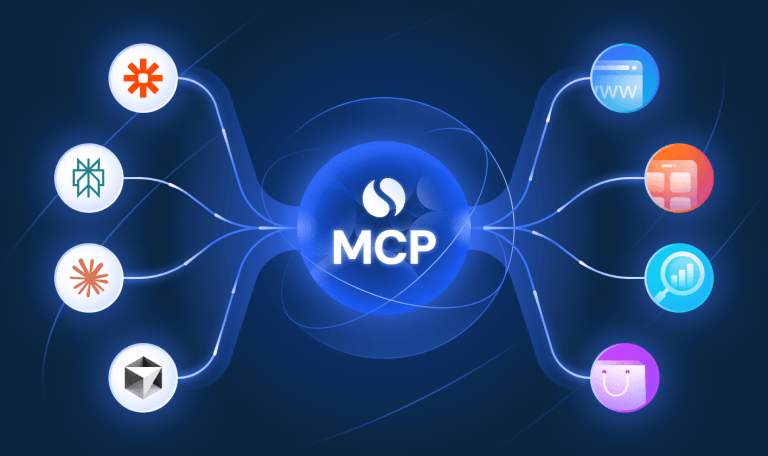Data Quality and Its Importance: Examples, Benefits, and Best Practices

Businesses make critical errors in decisions because they rely on flawed information. This is the reality for many organizations dealing with poor data quality. Accurate, reliable, and complete data is the backbone of any successful business strategy. One good example is when a coding issue due to bad data caused Equifax to send inaccurate credit scores to their lenders’ clients. In addition, organizations pay an average of $12.9 million per year because of poor data quality, according to a report by Gartner.
Let’s explore what data quality is, why it’s important, and how businesses can achieve the highest standards for their data when employing Data-as-a-Service.
What is data quality?
Data quality refers to how accurate and reliable information is. High-quality data is accurate, complete, consistent, reliable, and timely. Data quality means the data fits its intended purpose in operations, strategic planning, and analysis. When data accurately and consistently represents real-world scenarios, it is considered high quality.
Why Is data quality important to an organization?
Data quality is fundamental to any organization’s success. High-quality data supports accurate choices, improves customer satisfaction, and drives business growth. Poor data quality, on the other hand, can lead to misguided strategies, lost opportunities, and increased operational costs.
For instance, inaccurate customer data can result in failed marketing campaigns, while erroneous financial data can lead to non-compliance and hefty fines.
The benefits of quality data
High-quality data offers numerous advantages that can significantly influence an organization’s performance and success. It serves as a cornerstone for strategic planning and effective operations.
Improved decision processes
High-quality data provides a solid foundation for making informed decisions. Organizations can rely on accurate data to strategize effectively and gain competitive advantages. Accurate data analysis leads to better insights and more effective business strategies.
Increased operational efficiency
Quality data streamlines operations by reducing the need for manual corrections and improving process automation. This efficiency allows organizations to allocate resources more effectively and improve overall productivity.
Cost reduction
By minimizing errors and inconsistencies, organizations can significantly cut down on costs associated with data rectification and compliance penalties. Reduced errors also lower the risk of costly disruptions and inefficiencies.
Better customer insight
Accurate data helps in recognizing customer needs and preferences, and this often leads to better service and increased loyalty. Personalized marketing and tailored customer interactions become possible as it drives position customer experiences and satisfaction.
Regulatory compliance
High-quality data supports compliance with regulatory requirements and prevents large fines and legal issues. Maintaining accurate records allows organizations to meet industry standards and legal obligations. This also protects them from potential penalties.
Main elements of data quality
Understanding the key elements of data quality helps in evaluating and improving data standards:
- Accuracy: The data should correctly represent the real-world entities or events it is supposed to depict contributing to reliable analysis and decision-making
- Completeness: Assesses whether all necessary data is present as incomplete data can lead to inaccurate analyses
- Consistency: Remains uniform across different systems and datasets preventing conflicts and discrepancies
- Integrity: Verifies that the data is reliable and trustworthy and involves maintaining and assuring the accuracy and consistency of data over its entire lifecycle
- Timeliness: Data should be current and available when needed as outdated data can mislead strategic planning processes
- Uniqueness/Deduplication: Guarantees that each data record is unique, removing duplicates that can skew analyses and reports
- Validity: Data conforms to the defined business rules and parameters and confirms it is in the correct format and within the required range.
- Accessibility: Easily accessible to authorized users
How can you identify quality data?
Good data quality means that data is accurate, reliable, and timely. It should effectively serve its intended purpose in operations, strategic decisions, and planning. High-quality data minimizes errors and prevents misinformed decisions, leading to improved business outcomes.
For instance, precise customer data allows for personalized marketing strategies, which improves not just customer engagement but also sales. Good data quality also supports efficient process automation and regulatory compliance, significantly reducing operational costs and risks. When data is accurate and current, it provides a strong foundation for strategic planning and competitive advantage.
Data quality challenges
Organizations face numerous challenges in maintaining high data quality and this can significantly have an effect on their operations and capabilities to make the right judgment. Each challenge requires careful consideration to mitigate potential issues.
Data volume
The sheer amount of data generated daily can overwhelm systems and processes that are designed to manage it. Large volumes of data make it difficult to maintain consistency, accuracy, and completeness, which often leads to potential errors and inefficiencies.
Privacy and protection laws
Regulations such as GDPR and CCPA require organizations to maintain accurate and complete customer data. These laws increase the demand for meticulous data management practices, as any discrepancies can lead to legal consequences and loss of customer trust.
AI and ML integration
Incorporating artificial intelligence (AI) and machine learning (ML) into business processes introduces new complexities. AI and ML systems rely on vast amounts of data, and poor data quality can result in inaccurate models and predictions, which undermines the effectiveness of these technologies that are supposed to bring innovation.
Data governance
Effective data governance is an important element for maintaining data quality across an organization. Without clear policies and procedures, different departments tend to use varying standards and this leads to inconsistent and unreliable data.
Dark data
When organizations collect unused or hidden data but do not analyze them, it can create significant risks. It’s important to identify and manage this dark data in order to prevent quality issues and uncover valuable insights that may otherwise go unnoticed.
Edge computing
Processing data closer to its source, such as through edge computing, presents challenges in maintaining data consistency and reliability. Innovative processes and technologies are needed in order to keep the quality of data in these decentralized environments and handle them effectively.
How Similarweb ensures data quality
Similarweb applies a rigorous process in its data methodology to maintain high data quality standards and sets an industry benchmark in data intelligence. We extrapolate the tens of billions of digital signals gathered daily into an ultra-high-resolution picture of everything happening online, fueled by AI algorithms perfected by a team of over 200 top data scientists.
Collection
Similarweb gathers its data from all applicable sources:
- First-party direct measurement
- Anonymous behavioral data
- Public data
- Partnerships
Synthesis
Our unique data science converts noisy online data into a clear signal, normalizing all digital sources into a single view to accurately compare websites to websites and apps to apps.
- The cleaning and formatting of online data inputs ensures the inclusion of only high-standard sources.
- Billions of data inputs are synthesized for advanced predictive modeling.
- The classification of data inputs is utilized for categorizing and synthesizing.
Modeling
Similarweb’s proprietary algorithms and predictive models offer a reliable view of the digital landscape and ensure the stability of our market estimations over time through the use of machine learning calibration and predictive models.
Additional calculations and methodologies are in place to ensure that Similarweb data is of the highest quality.
The foundation of reliable business intelligence
For businesses, maintaining high data quality is not just an option but a serious necessity. Good data quality forms the backbone of reliable business intelligence. This drives better choices and operational efficiency. Organizations that invest in data quality management can unlock numerous benefits, from cost savings to improved customer satisfaction.
Accurate, complete, and timely data enables businesses to make informed decisions, streamline operations, and improve customer interactions. Addressing data quality challenges proactively and implementing strong data governance practices keeps the data reliable and valuable. By prioritizing data quality and implementing a Data-as-a-Service solution, companies can build a strong foundation for sustainable growth and competitive advantage. High-quality data not only supports compliance with regulatory requirements but also fosters trust in analytics and business intelligence tools, ultimately leading to better business outcomes.
FAQs
What are the common data quality issues organizations face?
Organizations frequently encounter several data quality issues that can hinder their operations. Common problems include data duplication, where multiple records for the same entity exist, leading to inconsistencies and confusion. Incomplete data is another issue, where key information is missing, making it difficult to gain a full understanding of the data set. Inconsistent data occurs when there are discrepancies in data values across different systems or datasets. Outdated data can also lead to misguided decisions and inefficiencies.
How can data quality be improved?
Improving data quality involves several strategies and practices. Regular data profiling helps to understand the current state of data and identify issues. Data cleansing is needed to correct errors, remove duplicates, and fill in missing information. Implementing strong data governance checks that data management policies are followed consistently. Organizations can also use advanced data quality tools to automate the detection and correction of data issues. Training staff on data quality best practices and promoting a culture of data stewardship can also significantly optimize data quality.
Why is data quality crucial for regulatory compliance?
Regulatory compliance often requires organizations to maintain accurate and complete records. High data quality helps meet these requirements by providing reliable and trustworthy data. For example, regulations like GDPR and CCPA mandate that organizations accurately track and manage personal data. Inaccurate or incomplete data can lead to non-compliance and this may result in hefty fines and legal actions. Maintaining high-quality data supports compliance efforts and helps organizations avoid the risks associated with data inaccuracies.
What is the role of data governance in maintaining data quality?
Data governance provides a structured framework for managing data throughout its lifecycle. It involves setting policies, procedures, and standards for data management to maintain consistency, accuracy, and reliability. Data governance verifies that data is handled in a manner that supports business goals and regulatory requirements. It includes defining roles and responsibilities for data management, establishing data quality metrics, and monitoring compliance with data policies. By providing clear guidelines and oversight, data governance helps maintain high data quality across the organization.
How does poor data quality impact decision-making?
Poor data quality can significantly negatively affect decision-making. Inaccurate or incomplete information leads to unreliable analyses and reports. For instance, marketing strategies based on flawed customer data may fail to reach the intended audience effectively. Financial calls based on incorrect data can lead to budgeting errors and financial losses. Poor data quality can erode trust in data systems, causing decision-makers to rely less on data-driven insights and more on intuition, further compromising business outcomes.
Wondering what Similarweb can do for you?
Here are two ways you can get started with Similarweb today!













